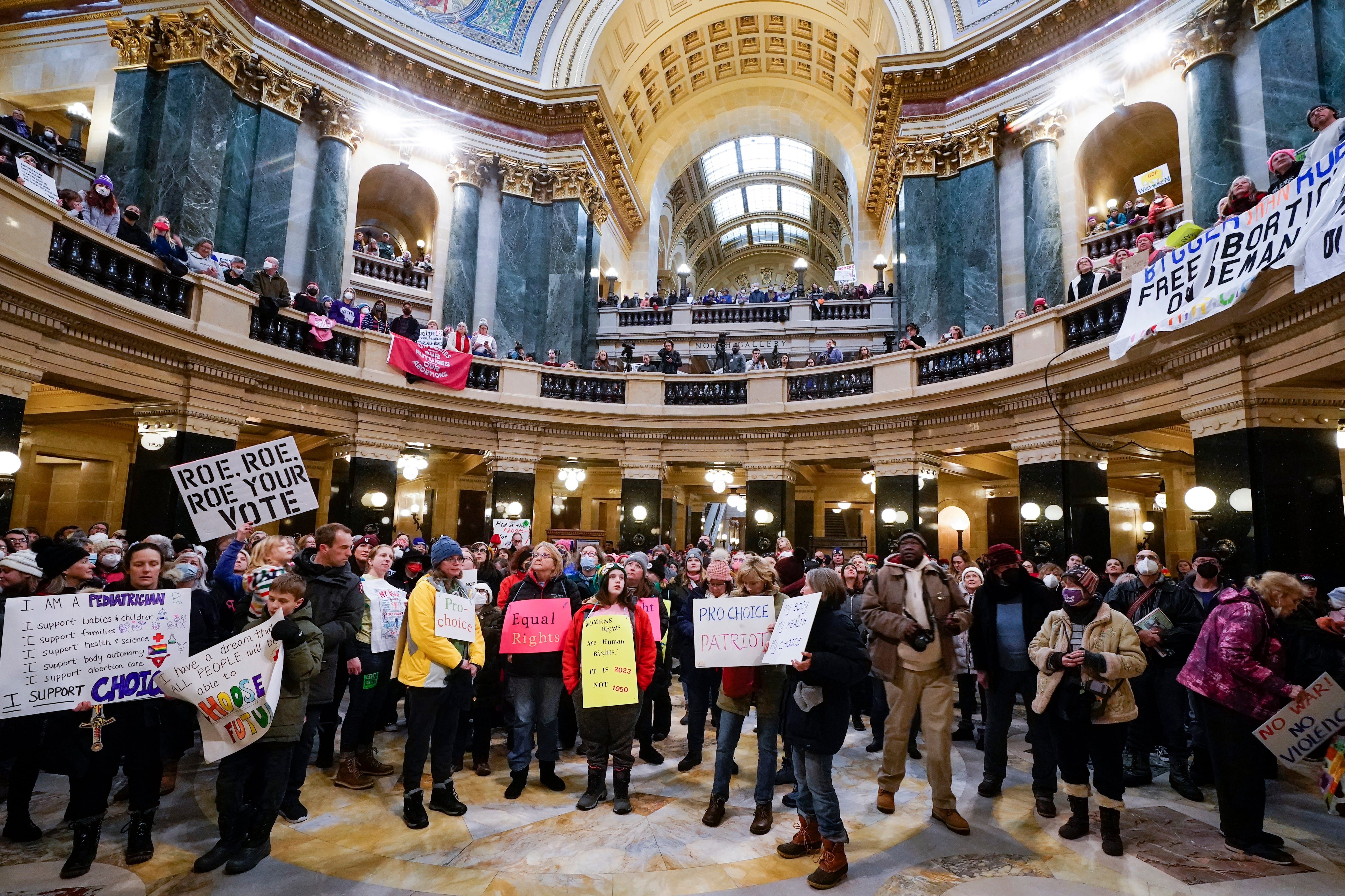Planned Parenthood resumed offering abortion services in Wisconsin on Monday after halting them for more than a year since the U.S. Supreme Court overturned Roe v. Wade.
Providers across the state stopped offering abortions following the June 2022 decision, fearing enforcement of an 1849 state law that appears to ban the procedure but had previously been nullified by the 1973 Roe ruling. A judge ruled last month that the 144-year-old law doesn't apply to medical abortions.
In light of the ruling, Planned Parenthood of Wisconsin began offering abortions at clinics in Madison and Milwaukee again on Monday. The group did not say how many abortions it expected to perform but said appointments at its Milwaukee clinic on Monday were completely filled within 24 hours of announcing that services would resume.
Without access to abortion care in Wisconsin for the past 15 months, many patients have sought assistance in neighboring Illinois, where abortions have remained widely available. According to Planned Parenthood of Illinois, its clinics have seen a seven-fold increase in patients from Wisconsin since the Supreme Court overturned Roe.
The lawsuit challenging Wisconsin's 1849 law was brought by the state's Democratic attorney general and is expected to end up in front of the Wisconsin Supreme Court, which flipped to liberal control last month.
Democrats, including Wisconsin Gov. Tony Evers, praised the resumption of abortion services. Meanwhile, anti-abortion rights groups in the state condemned the move and promised to continue fighting in court for the procedure to be outlawed.
A new poll finds most U.S. adults are worried about health care becoming more expensive.
The White House budget office says mass firings of federal workers have started in an attempt to exert more pressure on Democratic lawmakers as the government shutdown continues.
President Donald Trump says “there seems to be no reason” to meet with Chinese leader Xi Jinping as part of an upcoming trip to South Korea after China restricted exports of rare earths needed for American industry. The Republican president suggested Friday he was looking at a “massive increase” of import taxes on Chinese products in response to Xi’s moves. Trump says one of the policies the U.S. is calculating is "a massive increase of Tariffs on Chinese products coming into the United States." A monthslong calm on Wall Street was shattered, with U.S. stocks falling on the news. The Chinese Embassy in Washington hasn't responded to an Associated Press request for comment.
Most members of the Federal Reserve’s interest-rate setting committee supported further reductions to its key interest rate this year, minutes from last month’s meeting showed.
From Wall Street trading floors to the Federal Reserve to economists sipping coffee in their home offices, the first Friday morning of the month typically brings a quiet hush around 8:30 a.m. eastern, as everyone awaits the Labor Department’s monthly jobs report.
The Supreme Court is allowing Lisa Cook to remain as a Federal Reserve governor for now.
Rep. John Moolenaar has requested an urgent briefing from the White House after Trump supported a deal giving Americans a majority stake in TikTok.
A new report finds the Department of Government Efficiency’s remaking of the federal workforce has battered the Washington job market and put more households in the metropolitan area in financial distress.
A new poll finds U.S. adults are more likely than they were a year ago to think immigrants in the country legally benefit the economy. That comes as President Donald Trump's administration imposes new restrictions targeting legal pathways into the country. The Associated Press-NORC Center for Public Affairs Research survey finds Americans are more likely than they were in March 2024 to say it’s a “major benefit” that people who come to the U.S. legally contribute to the economy and help American companies get the expertise of skilled workers. At the same time, perceptions of illegal immigration haven’t shifted meaningfully. Americans still see fewer benefits from people who come to the U.S. illegally.
Shares of Tylenol maker Kenvue are bouncing back sharply before the opening bell a day after President Donald Trump promoted unproven and in some cases discredited ties between Tylenol, vaccines and autism. Trump told pregnant women not to use the painkiller around a dozen times during the White House news conference Monday. The drugmaker tumbled 7.5%. Shares have regained most of those losses early Tuesday in premarket trading.













